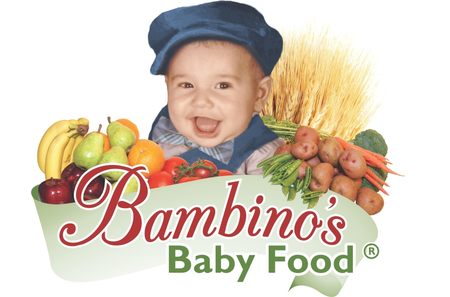As your infant begins to hit important growth and developmental milestones, many parents agonize over when to introduce solid foods. Experts and physicians differ on the exact timing—between 4 and 6 months is a big window—and they also disagree on which types of foods babies should start eating first.
You could spend hours scouring the Internet for the most up-to-date research and opinion articles on this complicated subject, but thanks to the creators of Bambino’s Frozen Baby Food, you don’t have to. In this article, Bambino’s will debunk some myths about introducing solid food that circulate and confuse parents. In addition, we will explain the primary signs your baby is ready to begin eating solid food.
Myth #1: Leading experts all agree that babies should be exclusively breastfed until 6 months.
The information most readily accessible to parents is overwhelming and sometimes confusing. While the American Academy of Pediatrics recommends breast feeding until 6 months, they do not rule out introducing solid foods beginning at 4 months. In fact, if you scroll around the AAP’s website for parents, you will find that the advice there focuses on developmental readiness rather than age.
Therefore, you can watch for the following developmental milestones that will indicate when your baby is ready to start eating solid food:
- Your baby is at least 4 months old: All experts agree that baby’s digestive tracts are not ready for solid food before 4 months of age, despite how quickly they develop the following abilities.
- Your baby can sit upright and hold the head up straight: Babies need to be able to sit up, mostly unassisted, in order to successfully eat and swallow solid food.
- Limited tongue thrust reflex: To eat from a spoon, a baby needs a different set of oral motor skills.He or she needs to have the jaw stability and coordination to open her mouth when offered a bite. Baby needs to have lost the tongue thrust reflex present earlier in life, which means that if you placed food in the front of his or her mouth, the tongue would no longer immediately push the food back out. Instead, your baby needs to be able to move the tongue to push food to the back of his or her mouth.
- Doubling of birth weight: Once your baby has doubled his or her birthweight, and has reached the other milestones listed here, he or she may be ready to begin eating solid food.
- Your baby is beginning to reach for food: Forcing solid food before baby is ready can prove difficult. Instead, wait until baby shows interest in eating the solid food on your plate.

Not only is this assumption incorrect, the data points to the exact opposite as being true. The U.S., the American Academy of Allergy, Asthma and Immunology recommends starting solids between 4 and 6 months based on data that this method may decrease the risk of developing food allergies. You can read their recommendations on preventing allergies here [PDF] – this report provides an excellent summary of the current research.
Myth #3: The first food I introduce to my baby has to be a grain-based cereal.
Rather than beginning with only grains, the Le Leche League International recommends introducing vegetables. They say frozen veggies are convenient to have on hand. Avoid the canned varieties to which salt has been added. Your baby may enjoy:
- Baked or boiled sweet potatoes, in tiny chunks
- Mashed white potatoes
- Baby carrots, peas and squash
The Bambino’s philosophy:
At Bambino’s, we have developed the ideal first foods for babies. Bambino’s Frozen Baby Meals (4+months) are the best way to introduce food to your beginning eater. Our baby food starts with the freshest, finest organic, 100% natural ingredients and gives baby a healthy head start. Our 4+month old meals include organic peas, sweet potatoes, and breakfast cereal—all three ideal choices for baby’s first food. Since each serving is perfectly portioned for your baby, all you have to do is warm and serve.
When you rely on Bambino’s Frozen Baby Food, you will never have to wonder about your baby’s nutrition, or whether you’re feeding your baby the right foods at the right time. Our research and experts do all of that work for you. Learn more about our products by visiting our website here: http://bambinosbabyfood.com/pages/about-us
Resources:
American Academy of Pediatrics: http://pediatrics.aappublications.org/content/129/3/e827
La Leche League International: http://www.llli.org/
The Science of Mom, by Alice Callahan, PhD: https://scienceofmom.com/
